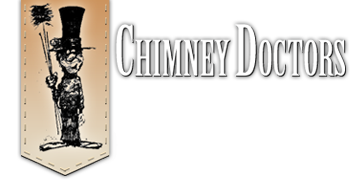Homeowners insurance is handy for covering unexpected home repair expenses. Understanding your policy and the types of damage it covers is crucial to navigating the often confusing process of filing a claim. In this post, we discuss the various scenarios where you may be able to use your insurance to pay for chimney relining and repairs.

Covered Perils
Homeowners insurance typically covers chimney repairs if the damage is caused by a covered peril. Covered perils usually include unexpected and sudden events such as lightning strikes, fires and storm damage. For instance, if lightning has struck your chimney and caused it to crack or lean, your insurance would likely cover the repair costs. Similarly, if a tree falls on your chimney during a storm, repairing the damage is usually covered.
However, not all types of damage caused by natural occurrences are covered. For example, wind damage alone may not be covered unless it leads to a tree falling on the chimney. Furthermore, damage from flooding or gradual soil erosion under the chimney might not be covered as these are not considered sudden and unexpected events.
When Insurance Won’t Cover Chimney Repairs
It’s important to note that standard homeowners insurance does not cover chimney damage resulting from neglect or normal wear and tear. Chimneys that are old, poorly maintained, or in need of upgrades or improvements before damage occurs are generally not covered by insurance policies — for example, a chimney that collapses due to pre-existing structural defects. Maintenance issues, including damage caused by a fire resulting from creosote buildup, are also typically excluded as this implies long-term neglect of chimney maintenance.
The Importance of Chimney Maintenance
Preventative maintenance is key to avoiding chimney damage that won’t be covered by insurance. Annual chimney inspections and cleanings are critical steps in maintaining your chimney’s integrity. Inspections can help identify issues before they escalate, while a chimney sweep removes soot, creosote, and other blockages that could lead to chimney fires. It’s also wise to consider waterproofing your chimney to protect against harsh weather conditions and to install a chimney cap to keep out precipitation, debris, and animals.
Navigating Insurance Claims
In the event of chimney damage, the first step is to review your insurance policy to understand what is covered and to report the damage promptly. It’s beneficial to have a chimney professional conduct an inspection and provide documented evidence of the damage when filing your claim. Be prepared for your insurance company to require an adjuster’s assessment. In some cases, you may also need to advocate for your coverage or work with a public adjuster if your claim is initially denied.
Chimney Doctors is ready to help you navigate the insurance claim process for your chimney masonry repair. We can also take care of your chimney’s upkeep so you can avoid extensive damage to the structure. Call us at (518) 882-5009 or fill out our contact form to schedule a consultation. We serve clients in Clifton Park, NY, and surrounding areas.












